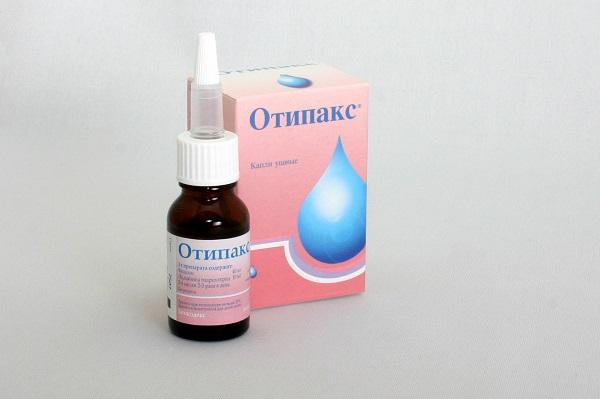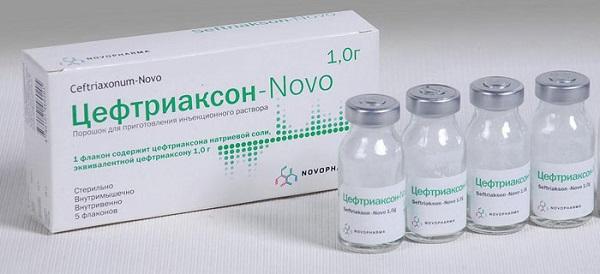Otitis in adults: treatment with antibiotics
Otitis is an inflammatory disease of the ear that can occur in various forms. The main cause of otitis media is infection, most often of a bacterial nature. Therefore, antibiotics are usually the main treatment for otitis media in adults. It is worth telling in more detail how to choose the right drug, in what forms antibiotics can be produced, and in what cases you can do without their use.
Otitis media and other varieties of this disease usually develop as a complication of various diseases of the throat and nose. If they are not treated correctly and in a timely manner, the infection spreads into the ear cavity, which causes inflammation, usually accompanied by the discharge of pus. In severe cases of otitis, there is a possibility of brain damage, meningitis and abscess, which are life-threatening.
Suppurative otitis media is almost always caused by bacteria. Therefore, the basis of treatment is antibacterial drugs, preferring drugs with complex effects that also help cope with inflammation. Antibiotics for the treatment of otitis media are produced in the form of drops and tablets; the attending physician will help you select the appropriate ones depending on the individual characteristics of the course of the disease.

The most suitable remedy is selected based on the main symptoms, the degree of damage in otitis media, and the occurrence of complications. It is worth listing the names of the most common ear drops used for this inflammatory disease.
- Otofa. A fairly effective antibiotic in drops with a wide spectrum of action, suitable for use in case of perforation, damage to the eardrum, which can occur due to illness or as a result of surgery. However, it is worth considering that this remedy does not relieve pain. Otofu can be used for chronic illness.
- Sofradex. These drops are extremely effective and have a wide spectrum of action; they are also used in ophthalmology. However, the product has many contraindications; it cannot be used during pregnancy, lactation, or with renal and liver failure. Also, in no case should you overestimate the dosage.
- Otipax. This remedy has the most pronounced analgesic effect, it has almost no contraindications, however, it is worth considering that Otipax can only help with mild forms of the disease. In some cases, the drug can provoke allergies due to lidocaine in the composition.
- Otinum. These drops are recommended for severe inflammatory processes; they rarely cause allergic reactions and have almost no contraindications. However, it is worth considering that they cannot be used if the eardrum is damaged due to the salicylic acid content in the composition. It can cause hearing problems if it enters the deeper structures of the ear.
This is a list of the most common antibiotic ear drops used to treat otitis media. When taking any medications, you need to be careful; you should not drip more often than written in the instructions, even if the pain and inflammation do not go away immediately. Irrational use of medications can lead to serious consequences, including hearing impairment.

Important! You should not put anything in your ears other than drops specially created for the treatment of otitis media and other ear diseases.
If otitis is caused by a fungal infection, use antifungal drops. The most common option is Candibiotic drops. They are used in the fight against external otitis, they have a complex effect. However, this drug often causes allergies, so caution should be exercised when using it.
What antibiotics to take
In case of extensive infection, drops with added antibiotics may not be enough; antibiotics are required in the form of tablets. They can be prescribed along with drops, it all depends on the occurrence of complications, the disease that caused the otitis media, and a number of other factors. Amoxicillin is usually used in tablet form. This antibiotic is universal; it is usually used in short courses for acute otitis media. The average time to take the drug is a week; you should not extend the course on your own. Amoxicillin can provoke allergic reactions.
For otitis media, drugs are often used in the form of injections, usually of local action. Injectable drugs usually have a wide range of uses; they are especially often prescribed if the pathogen cannot be accurately identified. Most courses of injections last up to two weeks. The following drugs are commonly used:
- Netilmicin;
- Cefuroxime;
- Ceftriaxone.

There are also intramuscular injection drugs, the most appropriate treatment should be chosen with your doctor. You should not reduce your course of antibiotics on your own, even if there is an improvement. An incomplete course of treatment can trigger a relapse of the disease.
When taking antibacterial agents, it should be taken into account that long-term use can provoke a decrease in immunity and disruption of microflora. Therefore, after treatment, it may be necessary to use prebiotics, take drugs that enhance immunity, and vitamin complexes. Under no circumstances should you use antibiotics longer than prescribed or artificially increase the dose of the drug.
In general, if you start taking antibacterial drugs in a timely manner, the prognosis for otitis media is good. It is important to always strictly follow the instructions; if complications arise, do not delay contacting a specialist. If treated incorrectly, otitis media can lead to serious consequences.
